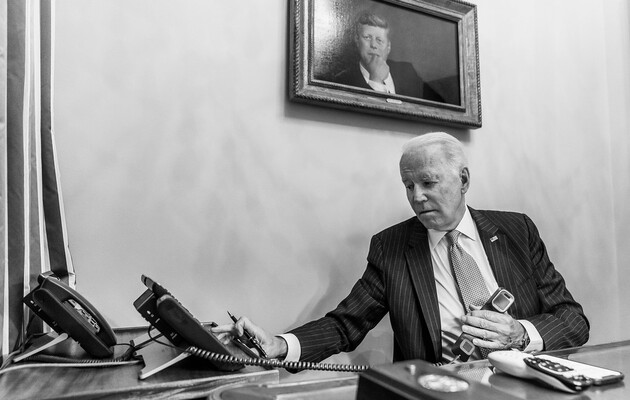The American policy of aid to Ukraine is now strongly influenced by the experience of the grueling Afghan wars, and not only those waged by the United States itself.

As President Joe Biden tries to quickly hand over surface-to-air missiles to Ukraine's army, US officials are considering if these weapons, aimed at Russian troops, fall “into the wrong hands.”
An unnamed U.S. official told the Washington Post that such concerns were a “planning factor.” However, we cannot allow “bureaucratic fear to prevent Ukrainians from getting what they need.”
This is just one of the ways in which the whole spectrum of wars in Afghanistan: from the Soviet invasion in 1979 to the chaotic withdrawal of US troops in 2021 – shapes Biden's approach to Ukraine. In 1986, a key decision was made to provide Afghan Mujahideen with Stinger missiles to destroy Soviet helicopters. But it was accompanied by fears of the possibility that the weapons would fall into the hands of people who wanted to attack US planes or even passenger airliners. From the armament of Ukraine's army to the formation of a new NATO unity, Biden's many political approaches are based on American and Russian policies in Afghanistan, where both nuclear powers have failed to impose their will on a small but unyielding local population.
The Washington Post cites some examples of how Afghanistan is currently influencing its policy toward Ukraine. For example, Biden is doing for Ukraine exactly what he has wanted for many years. The same goes for Afghanistan.
“As vice president, Biden persistently pushed for the withdrawal of US troops from the so-called perpetual war, but his efforts were rejected by President Barack Obama and his team. Later during the election campaign, Biden promised to bring home American troops. And he did it in the first year of his presidency, “the article reads.
However, in 2014, Biden demanded a tougher stance after the annexation of Crimea and the Russian invasion of Donbass. And now he, too, embodies his vision. The second factor influencing the Afghan war on American policy toward Ukraine now is that arming the locals was a key strategy in Washington. Controversy over the role of Stinger missiles in the Soviet defeat in Afghanistan has not yet been resolved. But almost no one doubts that these missiles deprived Moscow of an advantage on the battlefield, massively destroying helicopters.
In recent days, the White House has struggled to explain why it categorizes some weapons as “offensive,” which could push Russia to escalate, and others as “defensive,” which can be handed over to Ukraine and not be afraid that Moscow will strike. by NATO or the United States. However, he did not have to explain to Congress the transfer of weapons used to kill Russian soldiers. And all because of the precedents of the Cold War. And Afghanistan also plays a significant role here.
The third factor linking US policy in Afghanistan and Ukraine stems from the fact that Biden openly regrets the withdrawal of US troops from Afghan territory last year. In an interview with CBS, the president made it clear that he was “absolutely not responsible” for the fate of Afghans. The point is not that Biden is indifferent to suffering now in Ukraine as well. He eventually consolidated NATO and Asian Allies' efforts against Moscow, and provided the Ukrainian army with weapons to defend itself against Russian troops.
“But he drew a clear line: no NATO forces on Ukrainian territory or patrolling the Ukrainian skies. And that brings us back to the CBS interview, where he declared his responsibility solely to “protect American interests.” And that he is not going to put men and women in danger to “solve every problem in the world by force.” This is a lesson learned in Iraq and then in Afghanistan, “the article said.
Who else remembers Afghanistan well? Vladimir Putin. He is probably the one who better feels the similarities between the Russian invasion of Ukraine and the war that the Soviet Union once ignited in Afghanistan. In the end, the Afghan failure quenched Soviet appetites for empire-building. The withdrawal of troops in 1989 actually preceded the collapse of the communist giant.
“It is too early to say what consequences Moscow will face after the 2022 war. But the Afghan echo is already heard, “the article reads.




